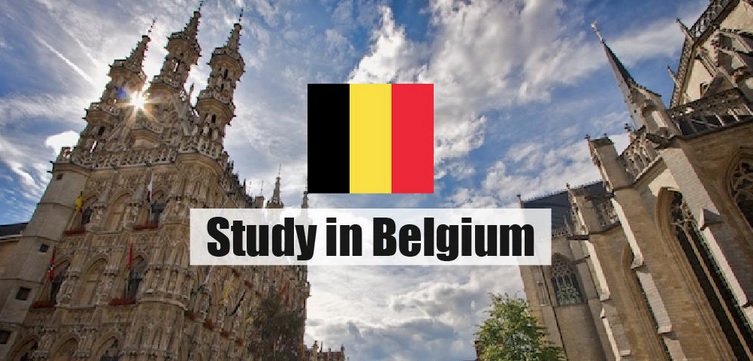If you’ve been accepted into a Belgian educational institution, the next step is applying for a Belgium student visa. This process involves several important steps and the submission of specific documents. Here’s a detailed guide to help you navigate the application process smoothly.
1. Determine if You Need a Student Visa
- EU/EEA/Swiss Citizens: If you are from the European Union (EU), European Economic Area (EEA), or Switzerland, you do not need a student visa to study in Belgium.
- Non-EU/EEA Citizens: If you’re from a country outside the EU/EEA, you will need a long-term visa (D visa) to study in Belgium for more than 90 days.
2. Choose the Right Type of Visa
There are two main types of student visas for Belgium:
- Short-Term Visa (Type C): If your study program is less than 90 days.
- Long-Term Visa (Type D): For study programs longer than 90 days, such as Bachelor’s, Master’s, or PhD courses.
3. Apply for Admission to a Recognized Institution
Before applying for a student visa, you must be accepted into a recognized educational institution in Belgium. You’ll need the letter of acceptance as part of your visa application.
4. Prepare Required Documents
Gather the following documents to support your student visa application:
- Visa Application Form: Download and complete the long-stay visa application form from the Belgian embassy or consulate website.
- Passport: A valid passport with at least 12 months validity and blank pages for the visa.
- Passport-Sized Photos: Two recent color passport photos, as per the specifications.
- Proof of Admission: The official admission letter from your Belgian institution, confirming your acceptance and enrollment.
- Proof of Sufficient Financial Means: You must demonstrate that you have enough funds to cover tuition fees, living expenses, and return travel. This can be shown through:
- Bank statements,
- Scholarship proof (if applicable),
- A sponsor’s declaration.
- Proof of Accommodation: Evidence of where you will stay during your studies in Belgium. This can include a rental agreement or confirmation of university accommodation.
- Medical Certificate: A recent certificate from a registered doctor stating you do not have any contagious diseases or conditions that could threaten public health.
- Proof of Health Insurance: Valid health insurance covering your stay in Belgium. Some universities provide insurance plans; otherwise, you can arrange it independently.
- Certificate of Good Conduct (Police Clearance): For students over 18, this document proves you have no criminal record. It should be issued by your home country.
- Motivation Letter: Explaining why you wish to study in Belgium and how the course will benefit you.
- Visa Application Fee: Proof of payment of the visa fee, which may vary depending on your country of origin.
5. Submit Your Visa Application
Once all documents are prepared, you can submit your visa application to the Belgian embassy or consulate in your home country. Depending on where you’re applying, the process may take place via:
- In-person submission at the embassy or consulate.
- Online application portal, in some cases.
6. Attend Visa Interview (If Required)
Some embassies may require you to attend an interview as part of the visa application process. Be prepared to answer questions regarding your studies, future plans, and financial situation.
7. Visa Processing Time
The processing time for a Belgium student visa can take anywhere from 4 to 12 weeks. It’s recommended to apply well in advance, ideally 3 months before your intended departure date.
8. Receive Your Visa Decision
Once your visa is processed, you will be notified by the Belgian embassy. If your application is successful, your Type D visa will be affixed to your passport. If your visa is refused, you may appeal the decision with additional supporting documentation.
9. Register Upon Arrival in Belgium
After arriving in Belgium, you must register with the local commune (municipality) within 8 days. You’ll be issued a residence permit for the duration of your study program.
10. Extending Your Visa
If your course duration exceeds the initial visa validity, you may need to renew your residence permit annually by proving continued enrollment and academic progress.
Conclusion
Applying for a Belgium student visa involves gathering essential documents, submitting your application to the appropriate embassy, and following local rules upon arrival. By preparing in advance and ensuring you meet the requirements, you’ll be well on your way to studying in Belgium. Make sure to keep track of deadlines and allow enough time for the processing of your visa before your program starts.
